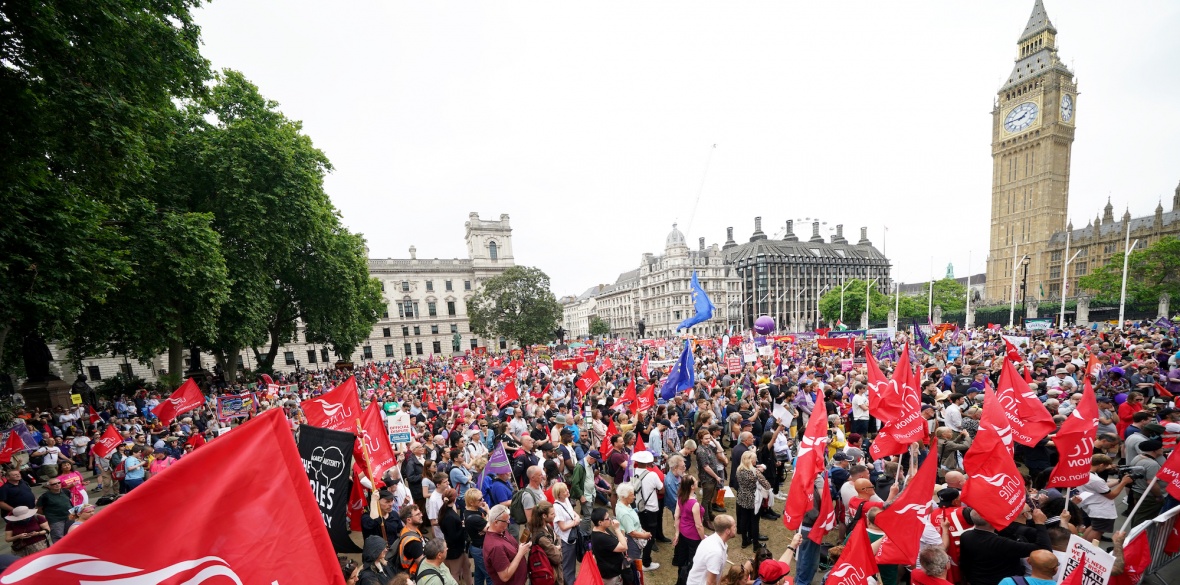This is the last article you can read this month
You can read more article this month
You can read more articles this month
Sorry your limit is up for this month
Reset on:
Please help support the Morning Star by subscribing here
MOST election systems are constructed to ensure that the ruling class stays the ruling class.
At its simplest — and with most fidelity to this principle — was the denial of the vote for most of the working class for all of the 19th century and for much of the 20th.
Equally frank in its assertion of the class basis of rule was the early Soviet denial of the franchise to employers, people who derived their income from interest on capital or rents, private merchants, brokers, former tsarist cops and the royal family.
This is an electoral system that might today appeal equally to striking railway workers, “generation rent,” most supermarket shoppers, anyone on the business end of the police or coerced into intimate contact with Prince Andrew.
Apply this principle to the election of the Tory Party leader and we would quickly narrow the field down to zero (as a matter of fact it would also thin out the ranks of Labour leadership contenders.)
The problem for Sir Graham Brady and the members of his back-bench 1922 Committee organising the poll for Britain’s next prime minister — one conducted on a voters’ roll that excludes all but a handful of British citizens — is that the Parliamentary Tory Party, although quite representative of Britain’s monied classes and thus completely unrepresentative of the British people, is not quite an accurate reflection of the ruling class either.
Hence the drama and divisions.
In decades past the Tory Party had some claim to be a social force rooted in the British people, but always the main repository of votes from monied professionals, the middle- and small-business class and those in awe of power and property.
Empire and its tribute was — and for those whose income is derived from profit, rent or interests still is — the material basis for popular support for the Tories.
Its present-day electoral base is disproportionately older and to some extent the beneficiaries of the deregulated financial system which has prioritised rising asset prices.
People living in or sitting on a property portfolio accumulated over the past few decades are the beneficiaries of this, while younger generations are increasingly excluded from this route to even the precarious security that 21st-century Britain offers its pensioners.
But the Parliamentary Tory Party is out of touch with even this narrowing constituency which, after decades of a bipartisan privatisation policy, is in its majority convinced that public utilities, the NHS, energy and public transport are better under public ownership.
In order to succeed in the Tory leadership race, each has to appeal to an electorate disproportionately made up of “free” market fanatics, low-tax obsessives, climate change deniers, gung-ho armchair generals and people who think that equality — codenamed “wokeness” — is an existential threat to a “British” way of life that is hard to find among real-life British people.
And that is before the choice of two is presented to the membership of the Tory Party.
Perhaps because he has most to lose, Parliament’s richest man is the one who appears most sensible to the real dangers of the deepening capitalist crisis that faces Britain’s economic order and thus its political stability.
In fact, the highly dramatised differences between Rishi Sunak and his rivals, which appear so large on our TV screens, are too small to make much of an appeal to an increasingly roused working-class Britain.
It is from the increasingly combative ranks of working people that the bedrock challenge to ruling-class interests is coming.
The question is, will Labour be part of this movement or a barrier to its successes?











